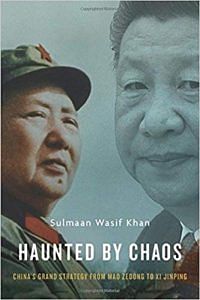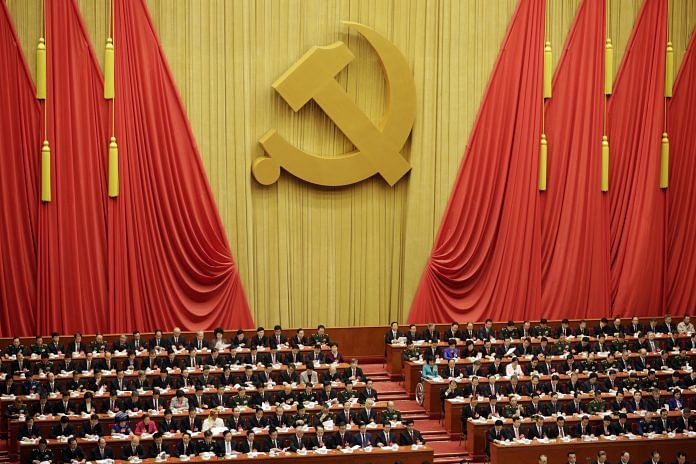Sulmaan Wasif Khan’s ‘Haunted by Chaos’ tells the story of how China’s leaders shaped its destiny through their distinct ideologies, traumatic pasts and disparate visions.
At a time when scholars are trying to demystify China’s elite politics and its incredible socio-economic transformations, Sulmaan Wasif Khan, in ‘Haunted by Chaos’ sets out on an ambitious quest to trace its ‘grand strategy’ from the year of its tumultuous birth to the present day.
From Mao Zedong to Xi Jinping, each of China’s ‘grand strategists’ dealt with the domestic and global compulsions the country faced in a different way — their policies and decisions were informed by distinct ideologies, traumatic pasts and disparate visions for the nation’s future.
According to the author, the grand strategy is “the way in which it (China) marshals different forms of power to pursue national objectives”. What China’s leaders possessed was a set of instincts, a sense of where it wanted to wind up and how.
Each of the leaders discussed in this book is a product of China’s unique history — with vastly different realities for President Xi, Hu Jintao, Jiang Zemin, Deng Xiaoping and Mao. Any attempt to identify or carve out the grand strategy of a remarkably changed China would require a thorough understanding of the state, with its growth story placed in parallel to the leaders’ personal and professional journeys.
While Khan’s book dissects the minds of modern China’s great strategists, it also lays out the broader strategic framework within which they had to function. It effortlessly tells the story of Mao’s pursuit of uniting China, Deng’s quest to bolster it, Jiang and Hu’s mission to nurture the country’s growth, as well as Xi’s vision to sustain that growth. The book also looks at the changing world order and the geopolitics of the time to assess how these may have been perceived by these strategists, and explains the calculus behind their decisions.
The success of this book lies in the fluidity of its narrative — and lightness about the way the author approaches the theme. Thoughtfully structured with simple sentences, the narrative helps the reader navigate through China’s evolving national objectives amid a fast-changing world order.
Describing the world as it would have appeared to China’s leaders with a hint of dry wit and irony makes the narrative even more compelling. For instance, while explaining the nuances of the informal alliance with Russia, the author notes: “Friendship is something ritualistic, performed; you must go through the ceremonies and motions to create it. Proclaim friendship often enough, and it just might be forced into existence.”
Similarly, while demonstrating the US’s policy on Taiwan, Khan writes: “The trouble with the Americans was that one never knew what they would do. They would preach realpolitik one day and human rights the next; they did not act rationally, consistently.”
The author then tells the story of present-day China, putting side-by-side the insights of its leaders and their decisions gathered from archival sources. The ability to present everything simply makes this book an absolute delight to read.
One may, however, ask — will it provide Sinologists with enormous amounts of new information? Possibly not, but it provides an alternative framework to view China’s evolving place in world affairs and how each leader’s worldview profoundly influenced its destiny.
 Veda Vaidyanathan is a research associate at the Institute of Chinese Studies, Delhi
Veda Vaidyanathan is a research associate at the Institute of Chinese Studies, Delhi



